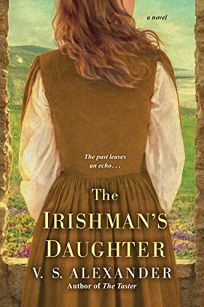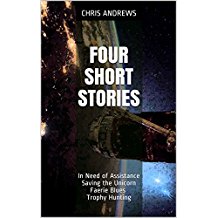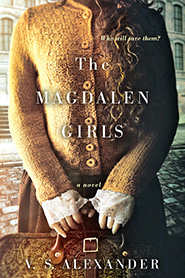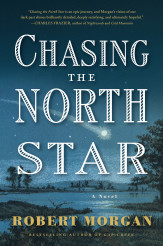Too many books, too little time! I got more reading done in July than I did in June, although a couple of the books I finished last month were actually started a month or more before. The best part was that I got to read 3.5 historical novels. Although not based in my favorite time period – America’s colonial and revolutionary eras – I was pleased with the novels, and even learned some things from the one I didn’t finish.
The Book Woman of Troublesome Creek, by Kim Michele Richardson

This historical novel taught me about two aspects of American history with which I was unfamiliar:
1. Due to an extremely rare genetic disease, Methemoglobinemia, some people in eastern Kentucky had blue skin; and
2. Part of the WPA program during The Great Depression paid people (mostly women) to deliver library books and other reading material to isolated individuals in Kentucky.
The Book Woman of Troublesome Creek is a fictionalized story of one such “Book Woman.” Cussy had blue skin and was, therefore, an outcast. She loved her job of delivering reading materials to her regular patrons. She rode a mule to do her work.
Cussy faced many dangers at home and on her book route, and this novel takes you along with her as she continually shows courage in the face of extreme poverty and personal vulnerability as a blue-skinned woman.
The first third or half of the book got a little tedious, as it seemed like most of Cussy’s days were pretty much like all her other days with the occasion father-arranged male visitors who came her way. As I recall, to a man, she found her gentlemen (and I use the term loosely) callers to be disgusting. Her father was desperate to marry her off because he’s promised Cussy’s mother he would.
Spoiler alert: Her father finally marries her off and it doesn’t begin or end well.
I’m glad I read the book because the story of those Kentucky WPA horseback and mule-riding librarians was something I hadn’t known about. I also didn’t know about Methemoglobinemia. I like books that teach me something. The Book Woman of Troublesome Creek, by Kim Michele Richardson, is a prime example of how we can learn from good historical fiction.
Mr. Churchill’s Secretary, by Susan Elia MacNeal

Mr. Churchill’s Secretary is the first book in the Maggie Hope Mystery Series by Susan Elia MacNeal. I read the fifth book in the series, Mrs. Roosevelt’s Confidante three years ago. I enjoyed it and have had Ms. MacNeal’s other Maggie Hope novels on my To Be Read List ever since. I wanted to go back and begin with the first book in the series. Now I look forward to reading the second book in the series, Princess Elizabeth’s Spy.
You might recall that Mr. Churchill’s Secretary was one of the books I was reading when I wrote my June 17, 2019 blog post, https://janetswritingblog.com/2019/06/17/delving-deeper-into-dialects-and-accents-in-fiction/. I was trying to read too many books at the same time, and I didn’t finish this Susan Elia MacNeal novel until July. That’s not a reflection on the book. It’s merely proof that I try to read more books than I can finish in a reasonable length of time.
Mr. Churchill’s Secretary takes place in London in 1940. Graduating at the top of her class, Maggie is highly-qualified to be a spy for the British government; however, being female, at first she is relegated to being a typist at No. 10 Downing Street for Prime Minister Winston Churchill.
Part of the time Maggie Hope is assigned to decoding at Bletchley Park. Here’s a link to a great four-minute interview with Betty Webb and Joy Aylard who actually worked there during World War II: https://www.bbc.co.uk/programmes/p07dgj2k. The program was part of the BBC’s celebration of the 75th anniversary of D-Day. (I’m now getting a message saying I can’t watch the clip at my location, but maybe you can where you are. A friend in Belgium sent it to me on Facebook.) If the BBC link doesn’t work, perhaps you can still find it on https://www.facebook.com/JanetMorrisonWriter/. I posted the video there on July 29, 2019. While you’re there, I invite you to “like” my writer’s Facebook page.
The copy of Mr. Churchill’s Secretary that I read included several pages of author’s notes at the end. It was interesting to learn how Ms. MacNeal wove real people and fictional people into this cohesive story. She also gave some research facts she discovered and what inspired her to write the novel.
The Spies of Shilling Lane, by Jennifer Ryan

This is an engaging historical novel set in London during World War II. Many novels have been published over the last several years in conjunction with the 75th anniversaries of various events of that war. I’ve read a number of them, but The Spies of Shilling Lane, by Jennifer Ryan stands out in my mind.
You might be surprised at who the spies in the story are. You’ll be surprised when some very unlikely people find themselves spying on the British Nazis and Nazi sympathizers. Woven throughout is a story of the estrangement between an adult daughter and her mother. There are family secrets that are eventually revealed.
If you follow my blog, you know I’m generally not a fan of listening to a novel, but I thoroughly enjoyed listening to this one.
I can’t wait to see what Jennifer Ryan has in store for us in her next novel. Perhaps you’ve read her debut novel, The Chilbury Ladies’ Choir. I also gave it five stars. If you want to see what I said about that book, here’s a link to my April 1, 2017 blog post, https://janetswritingblog.com/2017/04/01/the-authors-i-read-in-march/.
The Irishman’s Daughter, by V.S. Alexander

I’ve mentioned The Irishman’s Daughter, by V.S. Alexander in several of my blog posts including https://janetswritingblog.com/2019/04/08/three-other-books-i-read-in-march-2019/ on April 8, 2019. I’ve become a fan of V.S. Alexander’s historical novels. It’s just personal preference, but The Irishman’s Daughter didn’t hold my attention like Alexander’s first two novels, The Magdalen Girls (2017) and The Taster (2018.)
Alexander does a brilliant job of research and has a talent for sharing research without beating the reader over the head with info dumps.
The Irishman’s Daughter takes place in Ireland during The Great Potato Famine. The father in the story oversees an estate for an absentee landlord. He has two daughters. One dreams of marrying the rich landlord, who is oblivious to the poverty and starvation faced by his tenants. The other daughter is emotionally moved by the dire situation and tries to stretch their little bit of food with as many people as she possibly can. She longs to marry a local farmer.
I must admit that I did not finish reading this book. With other books vying for my attention, this one just didn’t grab me. I’ve read good things about the book, though, so I’ll give it another try when I get a chance.
V.S. Alexander’s next novel, The Traitor, is scheduled for publication on February 25, 2020. Although I didn’t like The Irishman’s Daughter as much as Alexander’s earlier books, I’ll get on the waitlist for The Traitor at the public library as soon as it’s ordered.
To see what I said about The Magdalen Girls and The Taster, please click on these two blog post links: https://janetswritingblog.com/2017/04/01/the-authors-i-read-in-march/ and https://janetswritingblog.com/2018/03/05/reading-and-writing-in-february-2018/.
Since my last blog post
I finished the online “Building a Writer/Author Platform course taught by Karen Cioffi-Ventrice. Here’s a link to it and other courses, in case you’re interested: https://www.wow-womenonwriting.com/.
I had good feedback about last Monday’s blog post, https://janetswritingblog.com/2019/07/29/onthisday-uss-indianapolis/. Therefore, I’ll plan additional #OnThisDay blog posts in the future. Thank you to everyone who left comments or liked it here and on other social media networks.
Until my next blog post
I hope you have a good book to read. I’m reading The Victory Garden, by Rhys Bowen and listening to Resistance Women, by Jennifer Chiaverini.
If you’re a writer, I hope you have productive writing time this week.
Thank you for taking the time to read my blog. You could have spent the last few minutes doing something else, but you chose to read my blog.
Let’s continue the conversation
What are you reading? Or what did you read in July that you’d recommend? Do you read historical fiction? If not, you’re missing a great reading and learning experience.
Janet

















